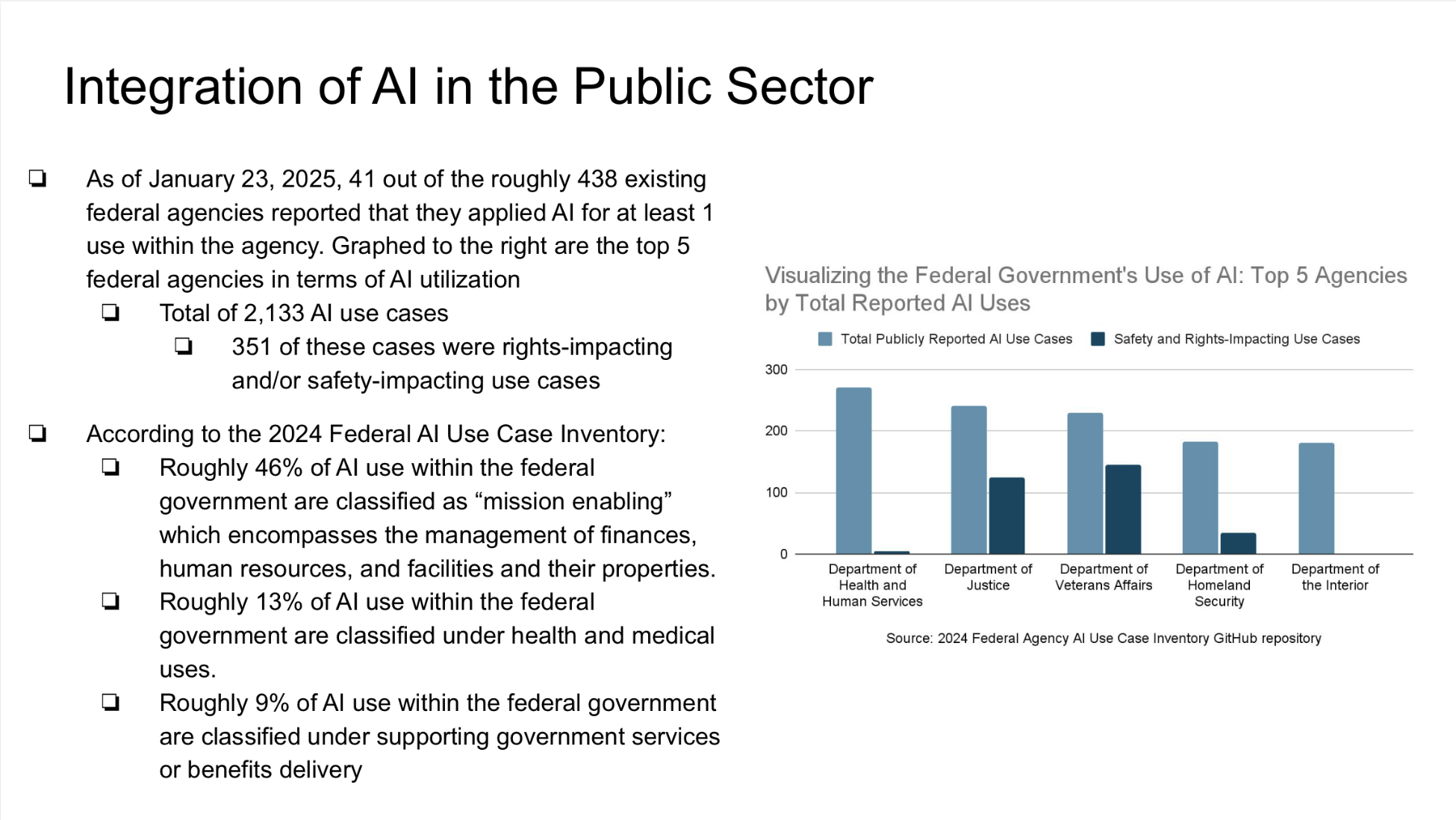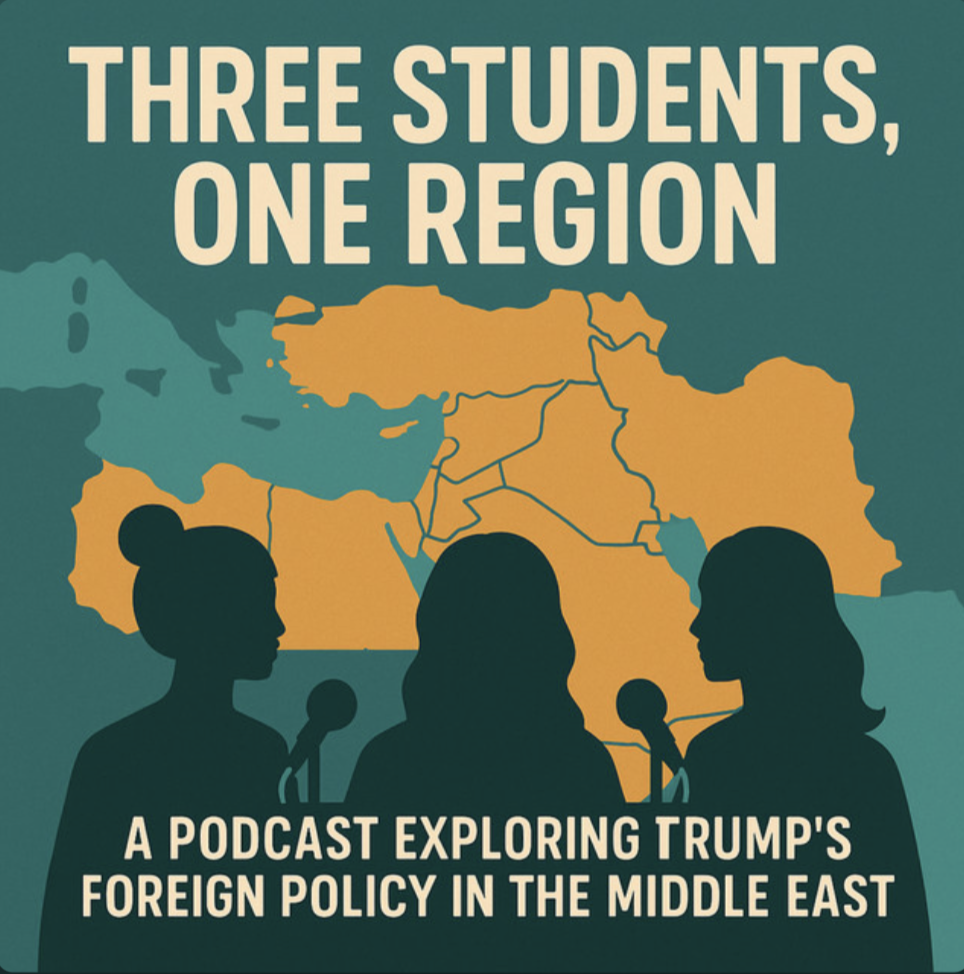Summer 2025 Named Fellowships
Each year, the Keck Center offers several fellowships in various research areas during both the academic year and summer. Fellows conduct research falling under one of the categories in the seasonal application. In summer 2025, the program expanded to involve direct collaboration with four professors: Dr. Hicham Bou Nassif, Dr. Jennifer Taw, Dr. Lisa Koch, and Dr. Hillary Appel. In eight weeks over the summer, fellows worked in teams on a themed project with distinct deliverables under each professor. This page will be updated as opportunities for summer 2026 are finalized.
Contact the Keck Center with any questions at KeckCenter@cmc.edu.
Summer 2025 Projects:
Hear from two of our Summer 2025 Named Fellowship participants!
Jack Stark Fellowship in Global Affairs: The Future of the Global Capitalist and Democratic Order (Supervised by Professor Appel)
Student researchers: Riley Cooper, Myles Kim, Nathan Perry, Violet Ramanathan, Abigail Niquette, Sophia Prosper & Akniyet Aldabergen
This research team examined past and current threats to the global liberal order that for decades promoted peace among democracies (in particular on the European continent after centuries of warfare), economic growth, higher living standards, and the rule of law. Many of the core members of that liberal order were imperfect democracies, often with self-serving foreign policies, but they nonetheless offered an attractive alternative to authoritarian political systems in the Cold War and Post-Cold War eras. Students discussed readings and worked in teams to develop two policy memos per group on current threats to the liberal order, including the rise of populist leaders, the abandonment of the free trade regime, and the weakening of multilateralism.
Peter Adams Fellowship in International Political Economy: US Economic Statecraft – Sanctions and Trade Wars (Supervised by Professor Koch)
Student researchers: Alex Chacon, Asher Engelberg, Advik Harlalka, Ellie Leiter, Jayla Provance, Matteo Quadrini & Shelby McIlroy
Students studied how and why the United States uses tariffs and economic sanctions in the international system? They examined the benefits and costs of these tools of economic statecraft and investigated the past and ongoing use of sanctions and tariffs by the United States. Working together in small groups, students developed policy recommendations regarding either tariffs or sanctions in US foreign policy today.
Harold W. Rood Fellowship in International Security: Enhancing U.S. Security (Supervised by Professor Taw)
Student researchers: Caden Lewis, Tulip Hori, Sara McMurtray, Sydney Nate, Isabel Del Villar
This summer research project investigated possible avenues to enhance U.S. security. The group spent the first couple of weeks in a cycle of discussion and research on what constitutes U.S. security, what factors affect it, what means there are to enhance it, and how leaders should prioritize among its many components. By the end of the second week, the group identified one-to-two policy questions to address and developed a group presentation deck focused on the effects of Artificial Intelligence on U.S. National Security:
William Crouch Fellowship in International Affairs: U.S. Foreign Policy under Trump (Supervised by Professor Bou Nassif)
Student researchers: Mary Martin, Jenna McComas, Lucy Meza, Danah Plair, Malia McColl, Jacob Pippel, Zach Kwong, and Ian Heuberger
Students examined the new directions in American Foreign Policy emerging under the Trump Administration. Students worked in teams to develop a podcast series on a range of topics including: How far will the current crisis in American-European relations go? Will America really take over Gaza – and where will the Palestinians go should that happen? Will the Trump administration defend Taiwan should it be attacked by China? Students researched these (and other) important American Foreign Policy questions and transformed the answers into podcasts published on Spotify.
Podcast links below!
-
Riley Cooper and Sophia Prosper analyze the effects of populism on U.S. politics, the ways in which social media facilitates its spread, and recommendations for the U.S. government. Read more here.
-
Nathan Perry analyzes the recent U.S. disengagement from the ICC. He presents recommendations for a U.S. strategy of “constructive engagement” similar to the approach taken with the International Labour Organization. Read more here.
-
Nathan Perry and Riley Cooper analyze how international institution structures have driven countries like Turkey and Brazil away from the liberal international order. They present recommendations for institutional reform to the United Nations Security Council and International Monetary Fund to revitalize multilateralism in line with U.S. interests. Read more here.
-
Sophia Prosper and Abigail Niquette argue that the U.S. should lead the creation of an alliance with Japan, Germany, France, the UK, Australia, South Korea, New Zealand, and Canada. The alliance would limit Chinese access to sensitive technologies and foster innovation among trusted allies. Read more here.
-
Violet Ramanathan and Abigail Niquette argue that the U.S. should adapt its trade instruments to better enforce international labor protections. They recommend incorporating stronger labor standards into U.S. free-trade agreements, targeted FDI loans, and microfinance grants in order to support the competitiveness of American jobs and improve labor conditions. Read more here.
-
Myles Kim and Violet Ramanathan argue that China, Russia, and Iran all present credible threats to the liberal international order. To revitalize U.S. leadership, they recommend that the U.S. establish stronger trade relations in the Middle East, Eastern Europe, and Central and South Asia. Read more here.
-
Myles Kim diagnoses the decline of the European center-left in the past few decades as right-wing populism has surged. He proposes that the center-left adopt a transformative economic agenda and rebuild grassroots political engagement. Read more here.
-
Matteo Quadrini and Jayla Provance argue that Russia continues to exploit loopholes in the U.S. sanctions regime to fund its war in Ukraine. As a result, they propose expanding targeted secondary sanctions on entities facilitating Russian oil says above the G7 price cap of $60 per barrel for a 12-month trial period. Read more here.
-
Asher Engelberg and Advik Harlaka argue that current U.S. policy on semiconductors is self-contradicting: while the CHIPS Act encourages investment, high tariffs on components limit incentives for foreign chipmakers to invest in U.S. production. They propose maintaining a 15% tariff on finished electronics but eliminating tariffs on components to encourage investment in U.S. production. Read more here.
-
Alex Chacon, Ellie Leiter, and Shelby McIlroy analyze current U.S. sanctions on Venezuela and argue that they have failed to achieve their political objectives while contributing to a deep humanitarian crisis. They recommend developing a “inflation brake” mechanism to ease sanctions in moments of severe economic crisis combined with sanctions relief tied to measurable democratic reform. Read more here.








